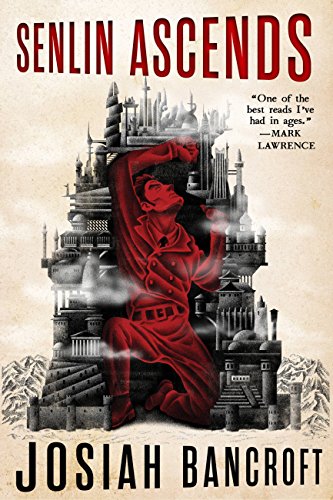Last year I wrote an article for Writers Digest about figuring out if you have too many characters in your story or novel, which brings me to Doctor Who.
I’ve had a tumultuous relationship with the show. When I was a kid, my older brother, Yan, was obsessed with Tom Baker’s Number Four, and as a result I kind of avoided it on principle. In college I chose to become obsessed with the even more obscure and even more British show The Prisoner. When they rebooted the show in 2005, I kind of ignored it, and only started watching with Matt Smith’s Number Eleven, then worked my way (somewhat) backwards from there.
What’s been interesting over the eleven seasons of the show that have aired since the reboot is the collective character arc of the Doctors. Number Nine was so desperate to flee his past he basically ignored it and pretended not to have one, but subsequent doctors slowly strapped on the old stuff, evolving into unhappy lonely gods and oncoming storms and self-loathing madmen in a box. The two showrunners who guided nuWho through it’s first 10 seasons, Russell Davies and Steven Moffat, shared a certain love for silly epicness—their stories were frenetic, loud, frequently illogical, and usually kind of fun, but things got very cluttered as the old-school stuff barnacled on with some new twists until the whole character and the universe he inhabited was very loud and very distracting.
So, in the new season, a new showrunner took over. Chris Chibnall, known for his work on Broadchurch (and some Who scripts over the years), was brought in to basically do a soft reboot, clean things up, find a new tone. In a sense, the casting of Jodie Whitaker as the 13th Doctor wasn’t just about a long-overdue gender swap, but also about the character’s arc, which had hit maximum self-loathing with twelve and come through the other side to acceptance. Whitaker’s Thirteen is lighter, freer, happier. She’s shed a lot of the dead weight, and the new season is meant to be a return to basics—history lessons, alien invasions, and a Doctor who has rediscovered their curiosity and dedication to a moral and ethical universe.
To be honest, I thought the ten episodes of the new season ranged from meh to meh-meh. There were bright spots—Whitaker’s performance as The Doctor is breathless fun—but overall I wasn’t terribly excited by the stories. With Moffat and Davies there was a lot to complain about, but there were usually a couple of bangers in each season you could sink your teeth into, but Chibnall’s first go left me a bit cold. And I finally figured out why: There are too many companions. Chibnall needs to read my article and cut a few.
Too Many Cooks
In the unlikely case you’re not familiar with Doctor Who but are still reading (because you love me?), the companions are the (typically human) everyday folks the Time Lord picks up and brings along on his adventures. Their main function is to have someone the Doctor has to explain things to, of course, but they usually wind up becoming pretty important characters to the Doctor’s arc and the show’s storytelling.
In the first 10 seasons of the new show, the companions have usually been limited to one, with a few satellite companions who would cycle in and out. Amy Pond and her husband Rory were an exception, but Rory as a character was so utterly defined by his orbit around Amy they were basically a single binary companion.
As a result, the companions had interesting arcs in their own right—Rose from the first four seasons transformed from a shop girl into someone willing to sacrifice everything for love. Donna went from a trashy, irritating woman to a figure of almost unimaginable tragedy. Martha transformed into a kick-ass warrior. Amy became perhaps the first true friend the Doctor ever had. Clara, who initially over-existed as The Impossible Girl, slowly evolved into something akin to a formerly-human version of the Doctor (and hey, might still be out in that fictional universe, perhaps starring in a TV show in an alternate universe called Professor What). Bill Potts began as a curious, spirited woman who didn’t let a lack of funds hold her back, and wound up finding acceptance and love in a way she couldn’t have anticipated.
Which brings us to the crowded TARDIS of Thirteen’s run. She’s got three companions, and they’re all fine folks in their way. The problem with the new season is, they don’t get to do much in each episode, and they don’t get to grow much as characters, because there’s too many of them.
Fine, Upstanding, Really Boring People
In the past, having just one companion or, sometimes, a main companion and some satellite companions, allowed the show to focus on the companion’s development over the course of the season. This year, Chibnall introduced four folks in the first episode: Graham, an older gent recently in remission from cancer, his wife Grace, a force of goodwill, her son Ryan, a nice enough guy who has father issues and resents Graham’s attempts to charm him, and Yasmin Khan, a rookie police officer struggling against the boredom of her low-level postings and the patriarchy. Some spoilers to follow, in case you need the warning.
So far, so good. You can see what Chibnall is trying to do—bring in some gender and racial variety, ground the crazy alien madwoman in a box with some down-to-earth folks. Plus, he’s seeded in a few bits of conflict that can pay off later. And to be fair, some of it does pay off. Graham and Ryan begin the season with an awkward relationship, and end it very much family. But otherwise, not much happens and the three surviving companions (I said there were spoilers) are basically in the same positions as at the beginning of the season. Graham is a genial grandfather type who carries emergency sandwiches. Ryan is a snarky kid uncertain how he fits into the world. Yaz is an earnest young woman who has experienced racism and sexism. None of them can be said to have grown much, or been explored much.
And, frankly, this comes down to screen time. There just isn’t room in any given episode to deal much with their characters. If you’ve ever seen an episode of modern Doctor Who, you know they blaze by at warp speed; the main prerequisite for an actor taking on the role is the ability to say 5,000 lines of pseudo-sciency dialogue in about thirty seconds. With one companion, you can devote a few minutes to their personal arc. With three, it’s hard enough to figure out plot reasons for all of them to have something to do, much less explore their personal journeys.
It’s different in a novel, of course; you can just add a few thousand words here and there to expand and explore your characters. A TV show has a specific number of seconds to tell a story, and sacrifices must be made. But Doctor Who would be well advised to lose a companion, maybe two. And if your own characters aren’t much changed at the end of your story, consider if you need to spend more time with them—and maybe have fewer of them, to boot.










